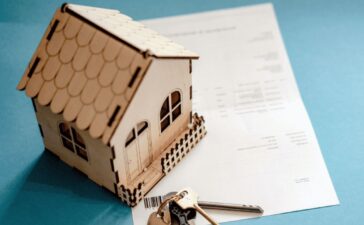Even though the number of power interruptions have experienced a minor decrease compared to the previous years, the population affected by power outages have rapidly multiplied. This only means that blackouts can happen more frequently to different parts of the world, due in part to extreme weather conditions and wildfires. Moreover, aging architecture and the lack of funding for electrical grid improvement are the root causes of power outages. In extreme heat using cooling fans for rooms can help you have great feelings when you are at home. But what if all in a sudden stops working?
As power outages occur frequently, it’s essential to be equipped and ready whenever it happens. Blackouts can happen anytime and anywhere, but when you’re at home, either alone or with your family, you should know how to keep your home safe and comfortable during this phenomenon by following these tips:
- Don’t Panic
When power and electricity suddenly stops, the first thing that everyone will notice is the household lights turn off. Once this happens, don’t panic and check your circuit breaker to confirm that the power is really out, or it might only be an overloaded or faulty circuit. If you have confirmed that the power is out, check and see if the neighborhood is experiencing the same. However, take note that the electrical design of most towns follows the grid system, so there’s a chance that some houses still have their electricity.
Experiencing an adrenaline rush is the initial reaction of the human body once it’s faced with an emergency. The human body isn’t programmed to stay still and work with critical thinking but is biologically designed to be reactive. During a distressing event such as a power outage, even though the body’s first reaction is to turn restless, minimize panicking as much as possible as it interferes with your mind to think appropriately and efficiently.
- Always Have a Plan Ready
Electricity powers most things in schools and offices today, such as household and office light fixtures and electrical appliances. People are highly dependent on power and electricity to the point that they’ll have a hard time continuing their daily tasks once it goes out. In case of these emergencies, your family should be well aware of one firm plan to follow. This plan includes keeping all necessary tools and supplies nearby, which serve as your first line of defense if the power outage is prolonged.
Necessary tools and supplies include water, instant and non-refrigerated foods, an emergency medical kit, flashlights, a power bank, smartphones, extra clothing, and bedsheets. To locate them quickly during an emergency, place them in a small container inside a cabinet that can be easily moved and transferred.
- Supply Your Electricity with a Generator
Fortunately, people won’t entirely suffer through power outages with the help of generators. Most power outages last for a few hours, so it’s essential to have your second source of electricity. Generators are devices comprised of motors, turbines, engines, pistons, or any mechanism that produces mechanical energy. The mechanical energy produced by these engines is then converted to chemical energy to electrical power, thus supplying a flow of electricity to different receivers.
There are two types of generators that you can use during power outages:
- Permanently-Installed Generators: As the word it implies, permanently-installed generators, or standby generators, are already attached to the electrical system of your home. Once your electricity goes out, permanently-installed generators automatically start running, and are powered by natural gas or propane. These generators are powerful and can run your primary appliances such as lights, fans, refrigerator, television sets, air conditioning systems, microwave, and more. The only drawback of standby generators is its huge price tag, which can range from $2,000 to $6,000.
- Portable Generators: Unlike standby generators, portable generators require some work before they run efficiently. They don’t run automatically once there’s a power outage. Instead, you have to situate the generator about 10 feet outside your home to prevent carbon monoxide poisoning, then load the generator with fuel and start running it. Then, connect a power switch to the generator using heavy-duty cords. Portable generators are less expensive than permanently-installed generators, as you can see from its limited features.
Even though generators can slightly hurt your pocket, these machines are beneficial, especially if your region frequently experiences power outages. If you’re looking for generators in the market, here’s a rundown of the top-of-the-line generators listed by iPropertyManagement.com. These generators have extended features, are equipped with smart technology, quiet mode, quick boot-up, and more.
- Take Note of Power Surges
As power outages happen, your electric utility provider immediately works to restore electricity. During this process, the electrical grid becomes unstable, and power surges become an issue. Power surges are characterized by a quick, sharp power spike in your household’s electric current. Generally, electrical outlets installed in walls supply 120 volts of AC power to different devices and appliances. When power surges happen, your power supply spikes at an incredibly high rate that surpasses the safe limit appliances and devices can tolerate.
When power surges happen, it can cause your devices and appliances to break down and overheat. Extreme surges can even light a fire. To avoid these scenarios, switch off everything connected to your household electricity and unplug them. Only leave one light on to alert you when power is back.
- Establish Safety in Your Home
Power outages present opportunities for theft or burglary. Once the electricity is out and not supplied with a generator immediately, a home’s surroundings can be susceptible to safety risks. During a power outage, supplying your appliances with electricity isn’t what’s more important, but making sure that the security system of your home has a backup. Crime prevention security systems inside your home, like motion sensors and alarms, should always have backup batteries. This backup battery will automatically run during a power outage, and will also recharge itself once the power is back again.
Additionally, see if your system has a radio, internet, or cellular connection, as these can be helpful during a power outage. Monitoring services like CCTV cameras are also advantageous to supplement your home security system with smart features that you can regulate even when you’re not at home.
For additional safety, establish non-electrical safety defenses in your home, which don’t rely on power, such as:
- Making sure that your doors and windows have updated locks.
- Installing deadbolts on your door for added security.
- Using door stoppers.
- Surrounding your lawn with high fences.
- Not leaving gardening tools or any sharp objects that can be used as weapons.
- Putting up security signs outside your home, stating that your home is monitored with a security system.
- Gather Everyone in One Place
If the whole family is present in the house during a power outage, immediately gather everyone into one room to check if they are safe. Usually, it’s the responsibility of the eldest members to initiate and lead the family during these events. But before doing that, advise everyone to establish safety protocols before leaving the room. Follow the other tips mentioned above, then talk about a firm plan together.
- Be Careful with Food
During a power outage, a home without a generator should be more conscious of precautionary measures they should take for their safety. Refrigerators are large appliances that require loads of electricity to generate their cooling system, and without power, food will surely perish, but there are some helpful tips to maximize cooling inside your refrigerator.
First, it’s better to consume perishable goods inside your refrigerator by turning them into snacks or eating them during your lunch. In consuming these products, make sure that you cook to kill bacteria that can affect your health. However, if you don’t have accessible heating methods, food with temperatures not lower than 4 °C or 40 °F are safe to eat.
As much as possible, keep your refrigerator and freezer doors closed. Refrigerators can stay cold for 3 to 4 hours while a closed, full freezer can maintain food for two days. To remind everyone about it, you can attach a “do not open” sign on the freezer door. If the power outage is estimated to last for more than a day, prepare a cooler and ice chests with which to keep your frozen goods.
- Watch Out for Water
Usually, water supply interruptions come after a power outage, but it’s not always the case. Water supply can have two sources: a well system and municipal water. If your neighborhood is supplied with wells, water supply will undoubtedly stop as pumps and water pressure tanks require electricity to deliver water into your household pipes. On the other hand, if your water comes from the municipality, you’ll still have water unless they also lose electricity that generates pressure, and have no generator for backup.
Right after a power outage, these mechanisms don’t immediately stop. Run to your bathroom and fill your bathtub, pails, and buckets until there’s enough water supply. Water is extremely essential for your daily necessities and tasks such as personal hygiene, cooking, and hydration. If you have a water heater in your home, it can also be a good source of water as it stores almost 40 gallons of available water.
- Keep Sources of Light Close
Having a good source of light during a power outage provides both convenience and security inside your home. During a power outage, make sure that sources of light that you can use are close, handy, and portable. Examples of these light sources are flashlights, lamps, and smartphone devices that have flashlights, which are powered by batteries that don’t require electricity. Also, make sure that you have enough cells that can replace current batteries once they run out.
Dark rooms inside your home are prone to burglary. If you have enough flashlights or lamps that can light different rooms in your home, make use of them. Faint to adequate amounts of light can deter burglars as it creates the impression that someone is inside that room. If you don’t have enough light sources, only use your lights in rooms where you’ll be staying and supplement safety devices and systems into other places, as mentioned above.
Lastly, enough sources of light can also assist you in doing your daily tasks regularly. However, it’s not advisable to use burning candles as they present fire hazards, especially when you have children and pets at home. Instead of using candles, homes with fireplaces are useful during power outages as this can serve as a vast source of light.
- Inquire with Your Electricity Provider
During a power outage, the first people who can help you with this issue is your electric utility company or service provider. You should always be observant and stay on top of any emergency by knowing information about how your electrical system works. If you’re still not informed about your power and electricity, immediately inquire about this with your service provider by dialing their contact number.
Some critical questions to ask your service provider are:
- Will my internet connection be affected during a power outage? If your home security system relies on internet connection, then this can be an issue for you. Some power outages affect home internet connections. Once your internet connection fails, features of your security system might stop as well. Take the next safety measures for your home if your security system stops.
- In what system does my home security system depend on? While having alarm systems on your home is advantageous during power outages, you still have to ask your service provider if it’s connected to a landline or via wireless connections. Traditional phone lines connected to your security system will still work efficiently, and it will also store backup power for your main security panels in case the blackout will be prolonged.
- When will my power come back? A pretty obvious yet helpful question to ask is what time your electricity will come back. You shouldn’t only wait until your power comes back; you also have to gather information, so you’ll be prepared once the electricity is back again. Most maintenance services immediately come over to check your grid during a power outage, but some of them might leave without restoring the power. Don’t worry about this scenario, as they will quickly deliver this information to your service provider.
- Be Careful with Activities Involving Heat
New methods of heating using electricity will not be available during a blackout, so you have no choice but to stick to traditional heating methods such as grills, stoves, and burners powered by natural gas. In using these appliances, be careful and make sure that you’re working in a large space, as it can present a risk of carbon monoxide poisoning. You can also add battery-powered carbon monoxide alarms inside your kitchen to alert you when such an incident happens.
Conclusion
Experiencing blackouts and power outages are extremely inconvenient for everyone, given that various mechanisms and appliances used in households depend on power and electricity. During a power outage, you have to remain observant and follow these tips to make your it easier for you and your family while the power has yet to be restored. If you don’t have the alert and security systems mentioned inside your home, then it’s time to get them to help you when power outages happen.






